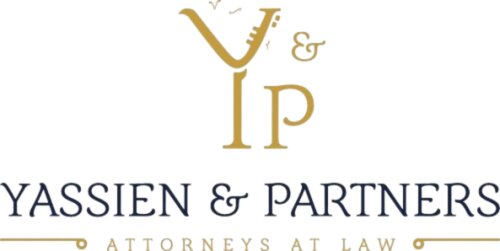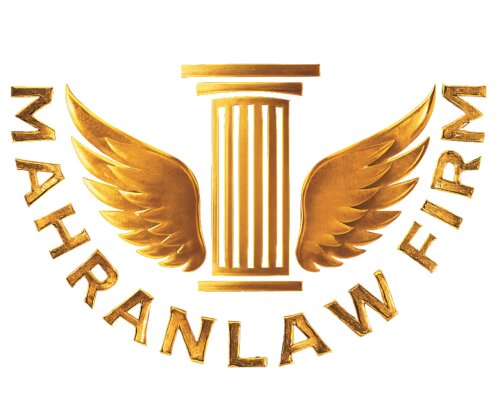Best Appeal Lawyers in Agouza
Share your needs with us, get contacted by law firms.
Free. Takes 2 min.
List of the best lawyers in Agouza, Egypt
About Appeal Law in Agouza, Egypt
An appeal is the legal process by which a party asks a higher court to review and change a decision made by a lower court. Agouza is a district within the Giza governorate and its local courts handle first-instance civil, criminal and family matters. Decisions issued by Agouza first-instance courts can generally be challenged before the appropriate Court of Appeal for the judicial district and, in limited circumstances, before the Court of Cassation for matters of law. The appeal process in Egypt focuses on correcting legal or procedural errors and, in many cases, reassessing factual findings when the law allows.
Why You May Need a Lawyer
You may need a lawyer for an appeal in Agouza in many common situations - for example:
- You were convicted in a criminal case and want to challenge the conviction or sentence.
- You lost a civil lawsuit that involves money, property or contracts and you believe the court applied the law incorrectly or misinterpreted the facts.
- A family court decision affects custody, visitation or financial support and you want to seek a different outcome.
- A public authority issued an administrative decision that you believe is unlawful and you want to appeal before the administrative judiciary.
- You need help meeting strict procedural requirements such as filing within time limits, drafting legal grounds for appeal, preparing the appellate brief or presenting oral arguments.
An experienced appellate lawyer helps identify appealable issues, gather and present the strongest legal arguments, comply with procedural formalities, and represent you at appeal hearings.
Local Laws Overview
The appeals process in Agouza follows national Egyptian laws and procedural codes rather than a separate local code. Key legal instruments and concepts relevant to appeals include:
- Codes and laws: the Civil and Commercial Procedures Law, the Code of Civil Obligations and Contracts, the Penal Code, the Criminal Procedure Law, the Administrative Judiciary Law and the Personal Status Law for family matters.
- Levels of review: cases typically move from first-instance courts to the Court of Appeal and, in limited legal matters, to the Court of Cassation which reviews points of law.
- Grounds for appeal: appeals commonly rely on errors of law, misapplication of legal principles, procedural violations, or significant factual mistakes where law permits factual review.
- Time limits: strict deadlines govern when appeals must be filed. Time limits differ by case type and by how the judgment was notified. Missing a deadline can forfeit the right to appeal.
- Evidence and hearings: the scope for introducing new evidence on appeal is limited compared with first-instance trials. Appellate courts often focus on legal errors and the record established at trial, though exceptional circumstances may allow additional evidence.
- Effect on enforcement: an appeal does not always automatically stop enforcement of a judgment. In some cases the enforcement is stayed pending appeal, but in others enforcement proceeds unless a specific suspension or guarantee is obtained.
- Representation and procedures: court filings and hearings are conducted in Arabic. Many appeals require formal written submissions and adherence to precise procedural formats and fee payments.
Frequently Asked Questions
What exactly is an appeal and what can it achieve?
An appeal asks a higher court to review a lower court decision. The appellate court can confirm, reverse or modify the lower court judgment. In some criminal matters an appeal may lead to a full retrial. In civil matters the court may amend the amount awarded or correct legal errors. The remedies available depend on the type of case and the specific grounds raised.
Who is allowed to file an appeal in Agouza?
Generally, any party directly affected by a court judgment or ruling can file an appeal. This includes plaintiffs, defendants, prosecutors in criminal cases, and third parties who have a legal interest recognized by the court. Legal standing and the proper procedural posture should be confirmed with a lawyer or the court registry.
How soon do I need to file an appeal?
Deadlines for filing appeals are strict and vary by case type and how the judgment was notified. Because the time limits differ and are strictly enforced, you should check the deadline with the court registry or a lawyer as soon as you receive a judgment or learn of a decision you want to challenge.
Where do I file an appeal for a judgment issued in Agouza?
You normally file the appeal with the court that issued the judgment or with the registry designated in the judgment so that the case is forwarded to the appropriate Court of Appeal for the judicial district. The specific registry and forwarding procedure depend on the nature of the case. The court registry can confirm the correct destination for appeals.
Do I need a lawyer to file and present an appeal?
While self-representation may be possible in some simple cases, appeals are highly technical and subject to strict procedural requirements. A lawyer experienced in appellate practice is strongly recommended to preserve rights, frame legal issues effectively and avoid procedural mistakes that can lead to dismissal of the appeal.
Can filing an appeal stop the other party from enforcing the judgment?
Not always. In some cases an appeal has a suspensive effect and enforcement is stayed, but in many others enforcement continues unless you obtain a court-ordered stay, post a security or meet other conditions specified by law. Ask a lawyer about obtaining a stay of enforcement or provisional measures when you file an appeal.
Can I introduce new evidence on appeal?
Generally, appellate courts rely on the trial record and focus on legal errors. Introducing new evidence on appeal is limited and usually requires exceptional circumstances, such as evidence that could not reasonably have been obtained earlier or proof of fraud in the original proceedings. Your lawyer can advise whether new evidence might be admitted.
What are the possible outcomes of an appeal?
The appellate court may confirm the original judgment, reverse it fully or partially, order a retrial, modify the sentence or award, or remit the case back to the lower court with instructions. The court may also order costs and legal fees against one party depending on the outcome.
How much will an appeal cost?
Costs vary by case complexity, court fees and lawyer fees. Filing fees and procedural expenses are typically payable to the court. Lawyers charge according to their fee schedules, which may be hourly, fixed, or percentage-based. If you cannot afford a lawyer, legal aid options may be available in qualified cases.
What if I cannot afford a lawyer or legal fees?
Free or subsidized legal assistance may be available through the Ministry of Justice legal aid system, local bar associations and legal aid clinics. Eligibility often depends on income and the nature of the case. Contact the Giza or Cairo Bar Association, the Ministry of Justice legal aid unit or university legal clinics to learn about assistance options.
Additional Resources
Helpful institutions and resources to contact or consult when dealing with an appeal in Agouza include:
- The Agouza court registry and the local first-instance courts for procedural information and copies of the record.
- The Court of Appeal that handles appellate matters for the Giza judicial district for guidance on appellate procedure.
- The Public Prosecution Office in Agouza for information about criminal case files and prosecutor-related procedures.
- The Ministry of Justice - legal aid department for information on subsidized representation and eligibility.
- The Giza Bar Association and the Egyptian Bar Association for referral to experienced appellate lawyers.
- University law clinics and non-governmental organizations that offer legal assistance in civil, criminal or human-rights matters.
- The Administrative Judiciary and the State Council for disputes involving administrative decisions by government bodies.
Next Steps
If you are considering an appeal in Agouza, follow these steps to protect your rights and prepare an effective case:
- Act quickly - determine the filing deadline immediately and do not miss it.
- Obtain the full written judgment and the court file - you will need copies of all relevant documents for your lawyer and for appeal filings.
- Consult an experienced appellate lawyer as soon as possible - a specialist can assess appealability, identify viable grounds and explain practical chances of success.
- Gather and preserve supporting documents and evidence - even if new evidence is limited on appeal, the trial record must be complete and well organized.
- Consider interim relief - if judgment enforcement will cause irreparable harm, discuss emergency measures with your lawyer to seek a stay or provisional protection.
- Explore settlement or alternative dispute resolution when appropriate - in some civil and family matters an appeal can be avoided by negotiation or mediation.
- Prepare for costs - discuss court fees, potential security requirements and lawyer fees so you can plan financing or seek legal aid if eligible.
- Ensure all filings are in Arabic and comply with formal requirements for signatures, notarization and authentication where required.
- Keep records of all court communications and receipts - these are essential for both practical follow-up and any future legal steps.
If you are unsure where to start, contact the local court registry or the Giza Bar Association to request a list of appellate lawyers and guidance on formal procedures. Early professional advice is the best way to preserve your rights and maximize the chance of a favorable result.
Lawzana helps you find the best lawyers and law firms in Agouza through a curated and pre-screened list of qualified legal professionals. Our platform offers rankings and detailed profiles of attorneys and law firms, allowing you to compare based on practice areas, including Appeal, experience, and client feedback.
Each profile includes a description of the firm's areas of practice, client reviews, team members and partners, year of establishment, spoken languages, office locations, contact information, social media presence, and any published articles or resources. Most firms on our platform speak English and are experienced in both local and international legal matters.
Get a quote from top-rated law firms in Agouza, Egypt — quickly, securely, and without unnecessary hassle.
Disclaimer:
The information provided on this page is for general informational purposes only and does not constitute legal advice. While we strive to ensure the accuracy and relevance of the content, legal information may change over time, and interpretations of the law can vary. You should always consult with a qualified legal professional for advice specific to your situation.
We disclaim all liability for actions taken or not taken based on the content of this page. If you believe any information is incorrect or outdated, please contact us, and we will review and update it where appropriate.










